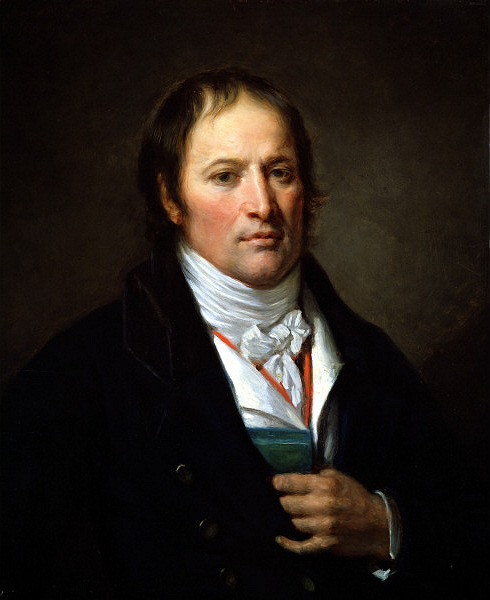
Jacques-Nicolas Billaud-Varenne
Jacques-Nicolas Billaud-Varenne (French pronunciation: [ʒak nikɔla bijo vaʁɛn]; 23 April 1756 – 3 June 1819), also known as Jean Nicolas or by his nicknames, the Righteous Patriot[1][2] or the Tiger,[2] was a French lawyer and a major figure in the French Revolution. A close associate of Georges Danton and Maximilien Robespierre, he was one of the most militant members of the Committee of Public Safety, and is often considered a key architect of the Reign of Terror.
Jacques-Nicolas Billaud-Varenne
Billaud-Varenne subsequently broke with Robespierre, partly due to their ideological conflicts relating to the centralization of power. Ultimately he played a major role in Robespierre's downfall on 9 Thermidor, an act for which he later expressed remorse.[3][4] After Thermidor, Billaud-Varenne was part of the Crêtois, the last group of deputies from The Mountain. He presided over the persecution of Louis-Marie Turreau and Jean-Baptiste Carrier for their actions during the War in the Vendée.[5][6][7]
Billaud-Varenne was later arrested during the Thermidorian Reaction.[8] Deported to Cayenne without trial, he married a black ex-slave, refused Napoleon's pardon there and finally died in Port-au-Prince in 1819.[9]
Billaud-Varenne was one of the central figures of the first part of the French Revolution, but he remains little studied or little understood.[10]
Biography[edit]
Early life[edit]
Billaud-Varenne was born in La Rochelle as the son of a lawyer to the parlement of Paris. Since both his grandfather and father were lawyers, and he was the first son in his direct family, Varenne was guaranteed a solid education and the same profession. Billaud-Varenne was educated at the college at Niort run by the French Oratorians, and took Philosophy at La Rochelle. His education at Niort was particularly important in shaping his character because its methods of teaching were uncommon to the revolution. At Niort, modernity and tolerance were emphasized, as opposed to most other schools of the time. Billaud-Varenne was also sent to another Oratory of Jesus school, the College of Juilly, where he was Hall prefect of studies. Here he later became a professor when he felt dissatisfied with practicing law, remaining for a short while, until his writing of a comédie strained his relationship with those who ran the school and he was obliged to leave in 1785.[11]
He then went to Paris, married and bought a position as lawyer in the parlement. In early 1789 he published at Amsterdam a three-volume work on the Despotisme des ministres de la France, and a well-received anti-clerical text titled "The Last Blow Against Prejudice and Superstition."[12] As events moved closer to Bastille Day, he adopted with enthusiasm the principles of the French Revolution.[13] An example of his beliefs regarding the Church can be found in this text:[12]
Attribution